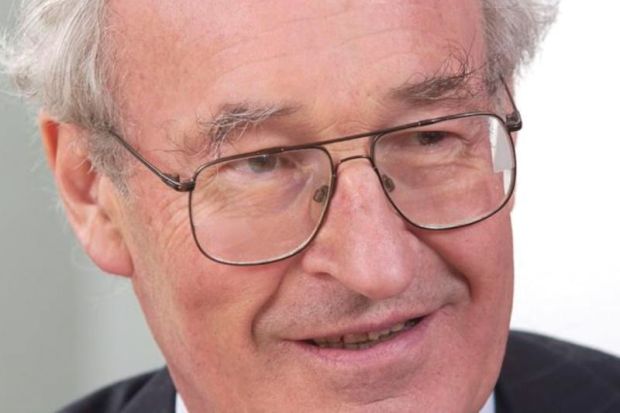A researcher often described as “the father of child psychiatry” has died.
Sir Michael Rutter was born in Lebanon, where his father was working as a doctor, in 1933 but moved to England as a young child and spent some of the war years evacuated to the US. He studied medicine at the University of Birmingham and then specialised in neurology and paediatrics.
In 1966, after training in psychiatry at the Maudsley Hospital in south London, Sir Michael joined what is now the Institute of Psychiatry, Psychology and Neuroscience at King’s College London. He would remain there for 55 years, until he retired earlier this year, serving as head of the department of child and adolescent psychiatry and the first director of both the MRC Child Psychiatry Research Unit from 1984 and the Social, Genetic and Developmental Psychiatry Centre from 1994, as well as the country’s first professor of child psychiatry. Even well into his eighties, he continued coming to campus several times a week right up until the start of the pandemic.
A consultant psychiatrist at the Maudsley Hospital, where the Michael Rutter Centre for Children and Adolescents was set up in his honour, Sir Michael also soon established a reputation as a major researcher. He carried out twin studies that illuminated the significance of genetic factors in autism. In Maternal Deprivation Reassessed (1972), he challenged the arguments of attachment theorists such as John Bowlby about the often devastating effects of maternal deprivation. He analysed the well-being and educational achievements of primary schoolchildren in both the Isle of Wight and inner London and followed this up with the research that formed the basis for his highly influential book Fifteen Thousand Hours: Secondary Schools and Their Effects on Children (1979).
In later years, Sir Michael continued to deepen our understanding of attachment through extensive longitudinal research on highly deprived children from Romanian orphanages adopted by English families in the 1990s. And he joined forces with his wife, Marjorie Rutter, to produce a comprehensive overview titled Developing Minds: Challenge and Continuity across the Life Span (1993).
Shitij Kapur, president of King’s, described Sir Michael as “one of the most influential psychiatric scientists of his generation”, whose work “changed the lives of countless patients” and “transformed our understanding of child and adolescent mental health” but also “inspired a generation of medical students into psychiatry, and a generation of psychiatrists into research”.
Sir Michael died on 23 October and is survived by his wife, three children and seven grandchildren.
Register to continue
Why register?
- Registration is free and only takes a moment
- Once registered, you can read 3 articles a month
- Sign up for our newsletter
Subscribe
Or subscribe for unlimited access to:
- Unlimited access to news, views, insights & reviews
- Digital editions
- Digital access to THE’s university and college rankings analysis
Already registered or a current subscriber? Login








